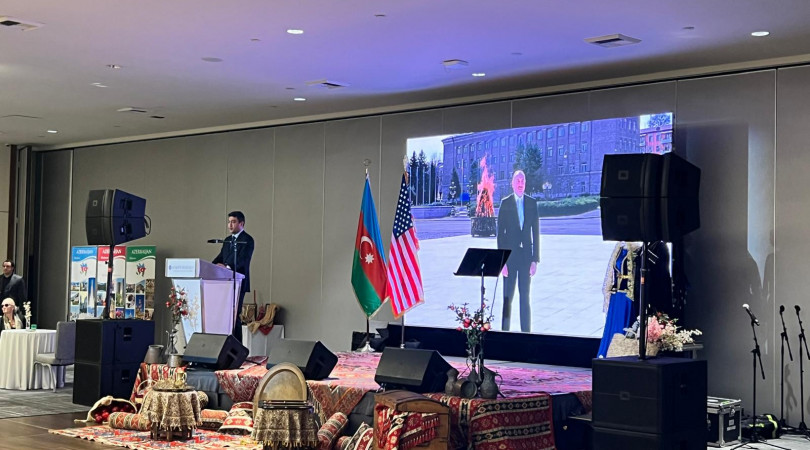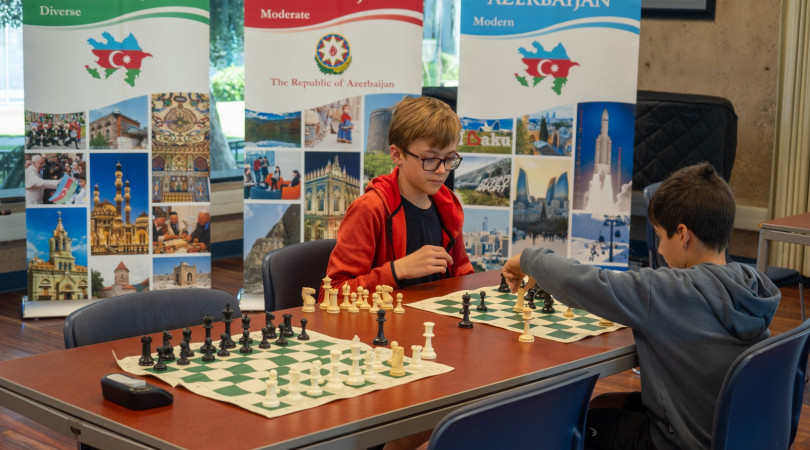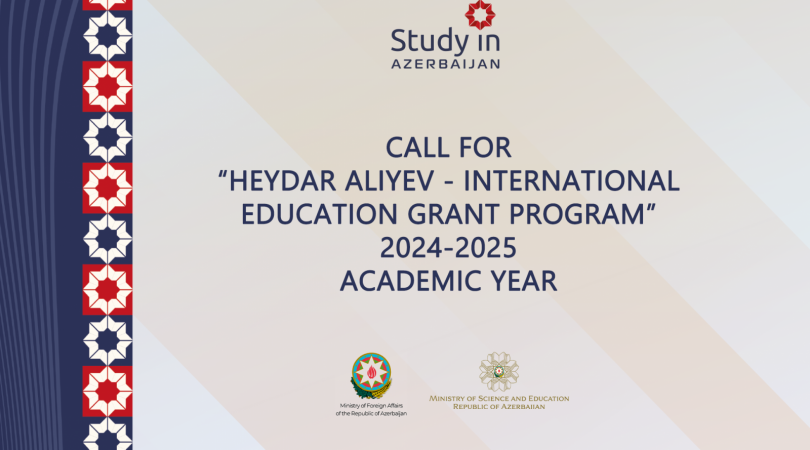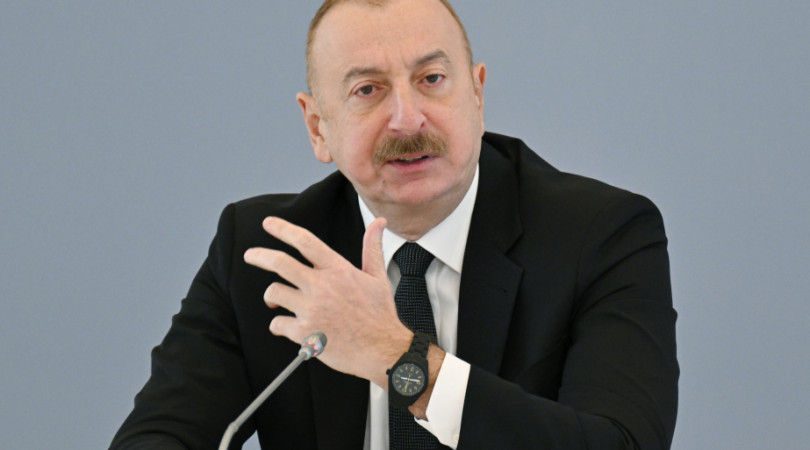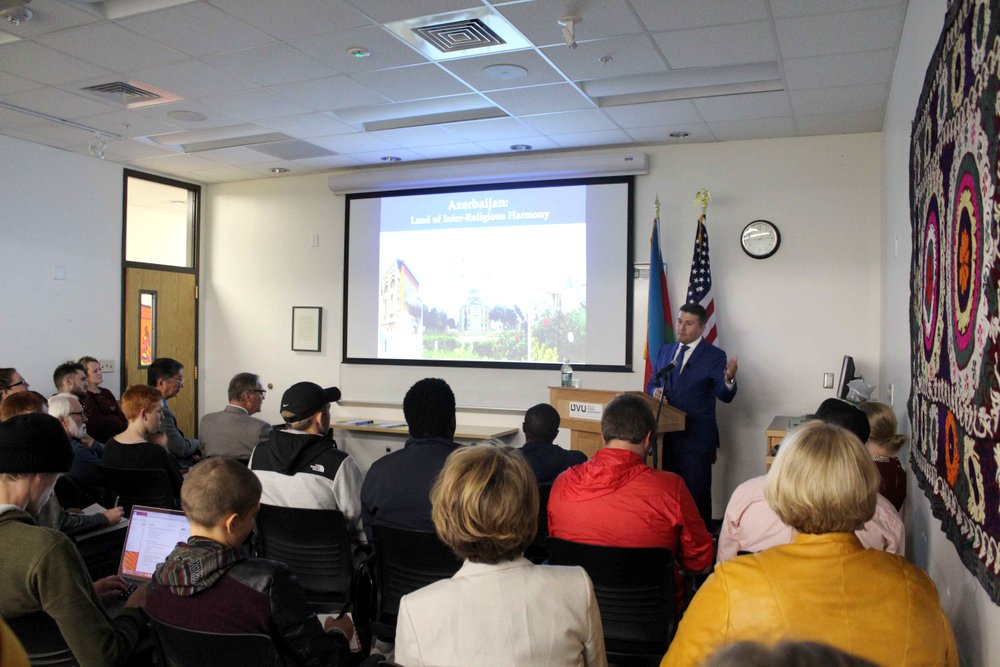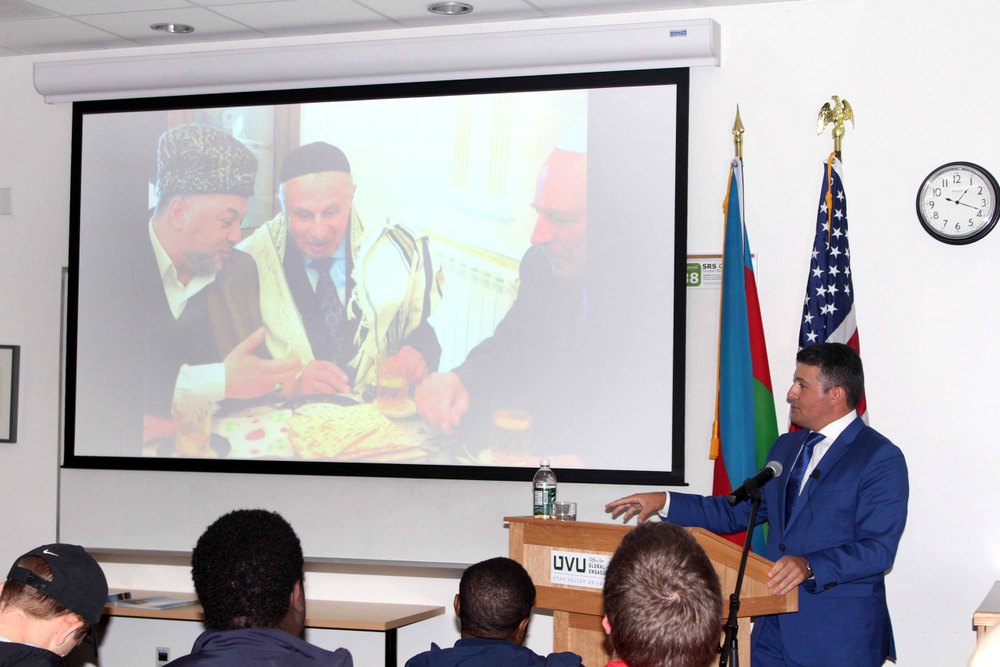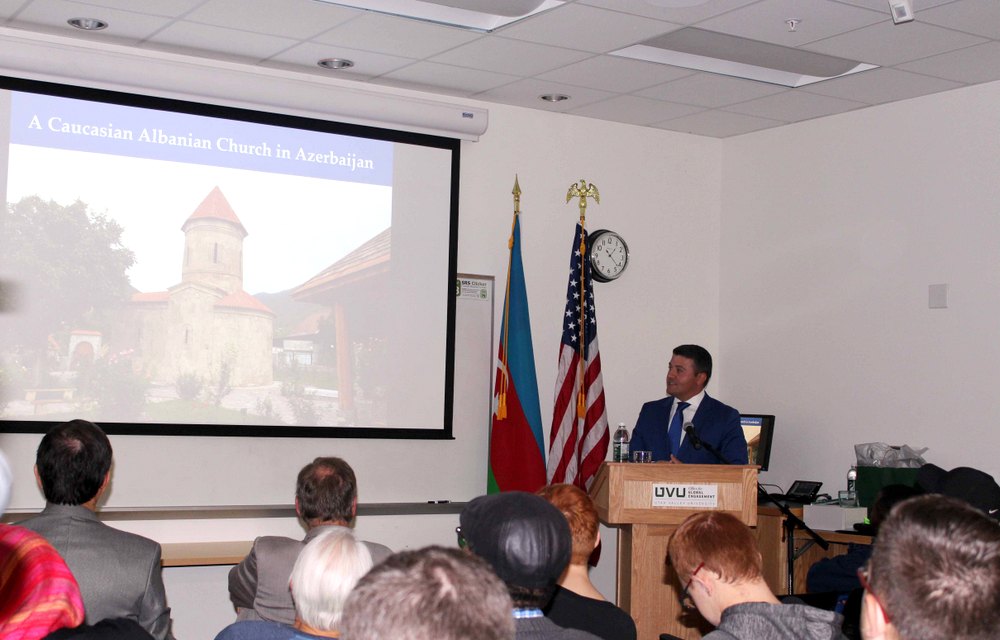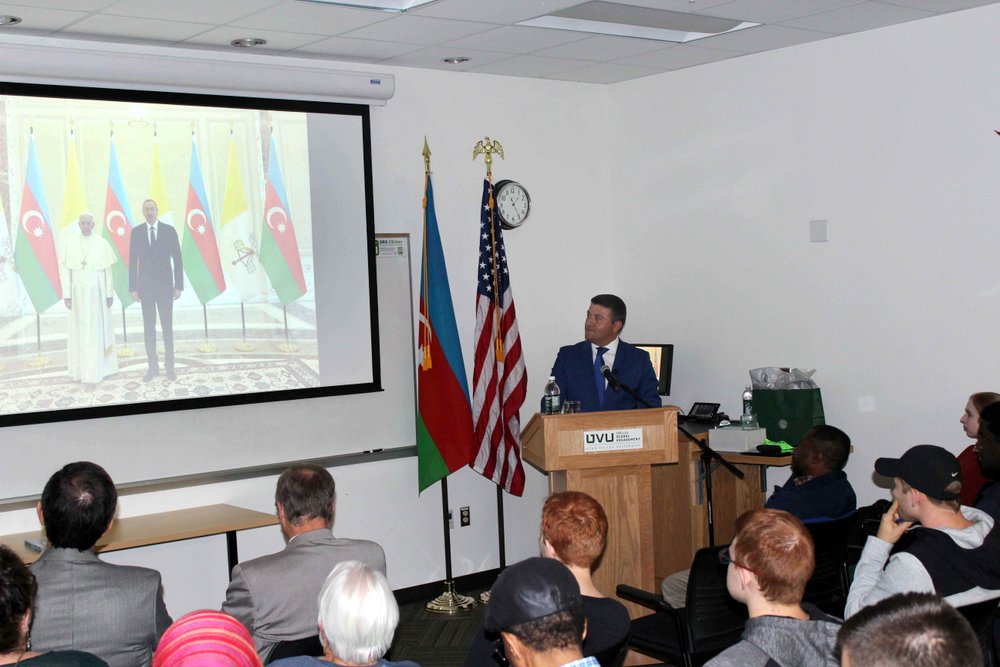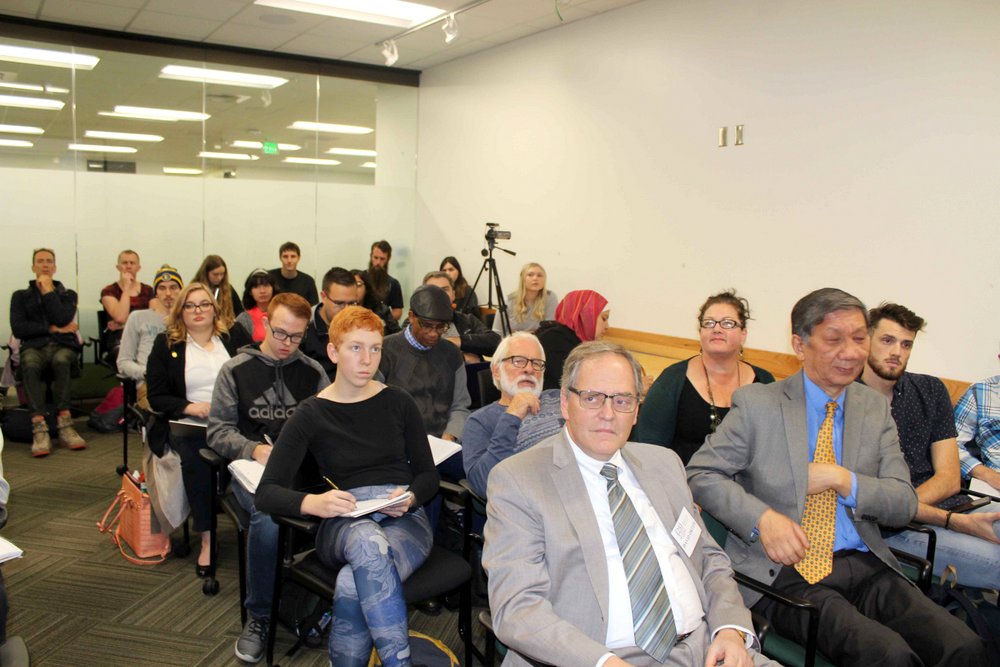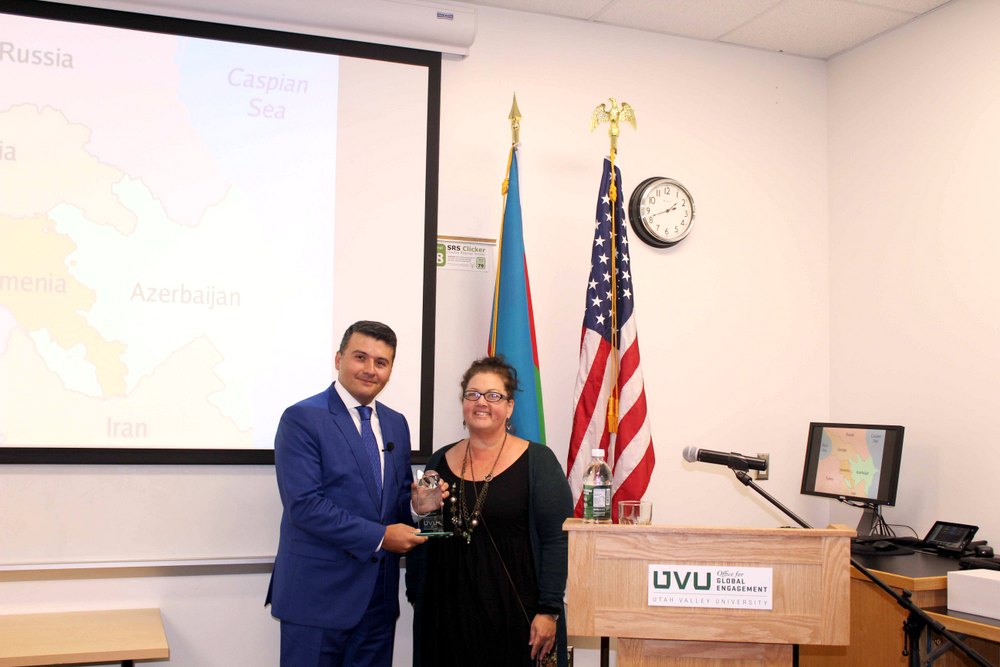Azerbaijan’s interfaith peace and harmony hailed at a U.S. university
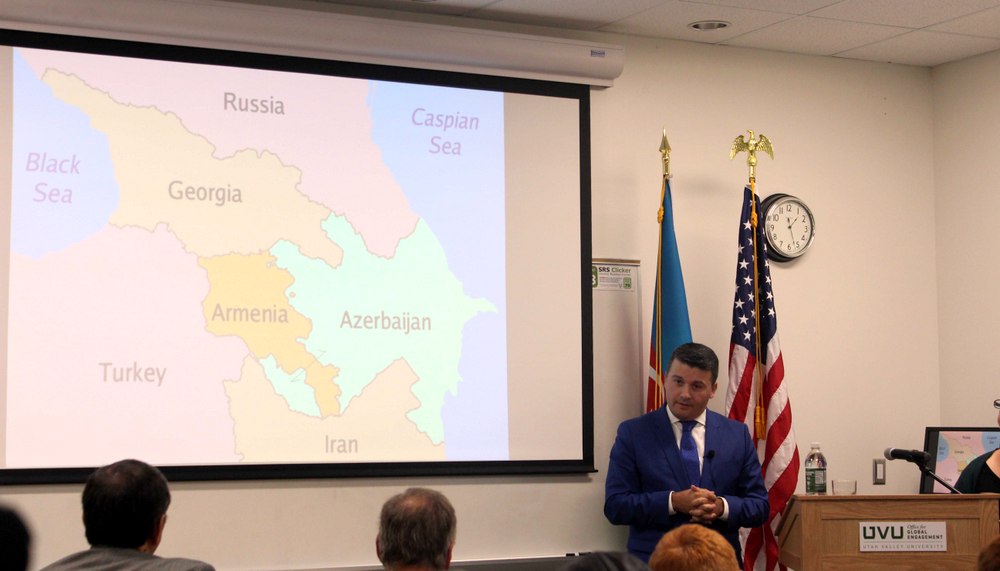 At the invitation of the Utah Valley University (UVU), Azerbaijan’s Consul General in Los Angeles addressed the students and professors of the University on October 8, 2018.
At the invitation of the Utah Valley University (UVU), Azerbaijan’s Consul General in Los Angeles addressed the students and professors of the University on October 8, 2018.
Being the largest public university in the State of Utah, the UVU has about 40,000 students enrolled in more than 200 degrees and programs.
In his presentation, Consul General Aghayev spoke about Azerbaijan’s ancient history, rich cultural heritage and its geostrategic location, as well as its steady development and modernization as an independent nation since the collapse of the Soviet Union in 1991.
Consul General stated that 100 years ago on May 28, 1918, the people of Azerbaijan established the very first Republic in its history - the Azerbaijan Democratic Republic. He further noted that it was also the first ever secular democracy among all Muslim nations and the first majority-Muslim nation to grant women the right to vote (1919).
Stressing the ancient traditions of multiculturalism and interfaith understanding in Azerbaijan, Aghayev said that since many centuries there have always been strong traditions of tolerance and mutual respect among different ethnic and religious communities, including Muslims, Christians and Jews in Azerbaijan. He stated that thanks to tireless efforts by Azerbaijan’s leadership, these traditions have been further fostered and strengthened since re-independence.
At the end, the Consul General responded to various questions from the audience.
Following the presentation, the UVU’s student coalition UIMF published an article about it together with student reflections on its website: http://utahimf.org/archives/3862
The article sums up: “The example of Azerbaijan as a regional leader in advancing constructive religious dialogue and interfaith efforts to improve civic, political, and regional issues is one that should be seriously considered by those interested in diplomacy, sustainable development, and religious relevance. Certainly, the model offered by the Consul General should be discussed as a tool that leaders and organizations can use to solve critical issues that involve and transcend religious identification.”

